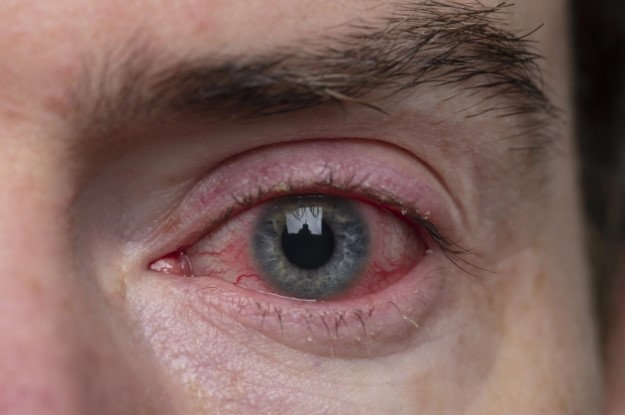 Corneal Ulcer: A Threat to Vision
Corneal Ulcer: A Threat to VisionThe cornea is the clear, dome-shaped front window of the eye that plays a key role in focusing light onto the retina and, consequently, your vision. A corneal ulcer refers to an injury or wound on this sensitive layer. This damage can be superficial or deep and, if left untreated, can lead to serious complications such as infection, vision loss, and even blindness.
Causes of Corneal Ulcers
Various factors can cause corneal ulcers, including:
Trauma: Eye injuries, scratches from sharp objects, chemical or thermal burns, or improper use of contact lenses.
Infection: Bacteria, viruses, fungi, and parasites can cause corneal infections, leading to ulcers.
Eye diseases: Certain eye diseases, such as dry eye, diabetes, and autoimmune diseases, can increase the risk of corneal ulcers.
Long-term use of certain medications: Some medications, such as corticosteroids, can increase the risk of corneal ulcers.
Symptoms of Corneal Ulcers
Symptoms of corneal ulcers may vary depending on the severity of the injury, but some common symptoms include:
Severe eye pain, especially when blinking
Redness of the eye
Blurred vision
Sensitivity to light
Feeling like there is something in the eye
Discharge of pus or watery fluid from the eye
Diagnosis of Corneal Ulcers
To diagnose a corneal ulcer, an ophthalmologist will use various methods, such as a slit lamp examination, corneal staining, and, in some cases, more specialized tests.
Treatment of Corneal Ulcers
Treatment of corneal ulcers depends on the cause, severity of the injury, and the presence of infection. Treatments may include:
Eye drops: To reduce inflammation, relieve pain, and treat infection.
Eye ointments: To treat bacterial and fungal infections.
Antiviral medications: To treat viral infections.
Surgery: In severe cases, surgery may be necessary.
Complications of Corneal Ulcers
If left untreated, corneal ulcers can lead to serious complications such as:
Severe eye infection
Scarring on the cornea and decreased vision
Vision loss
Blindness
Prevention of Corneal Ulcers
To prevent corneal ulcers, you can:
Wear protective eyewear: Wear safety glasses when engaging in activities that pose a risk of eye injury.
Care for contact lenses: Clean contact lenses properly and use them according to your eye doctor's instructions.
Treat eye diseases promptly: Promptly treat any eye diseases.
Practice good eye hygiene: Avoid touching your eyes with dirty hands.
A corneal ulcer is a serious condition. If you experience any symptoms, you should see an eye doctor as soon as possible.

 Corneal Ulcer: A Threat to Vision
Corneal Ulcer: A Threat to Vision
comment